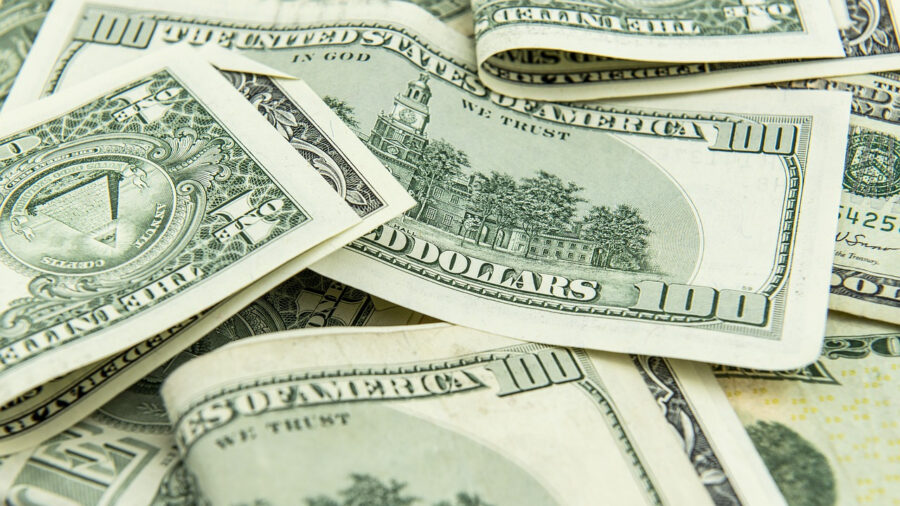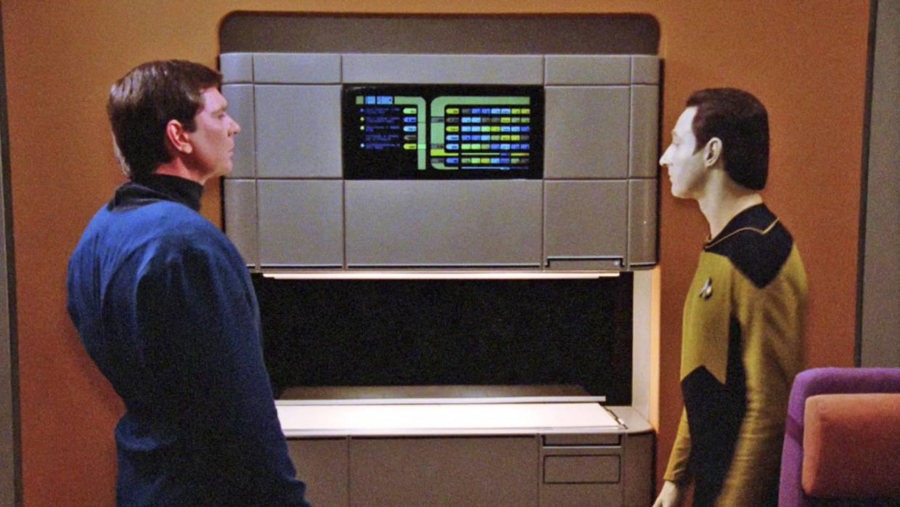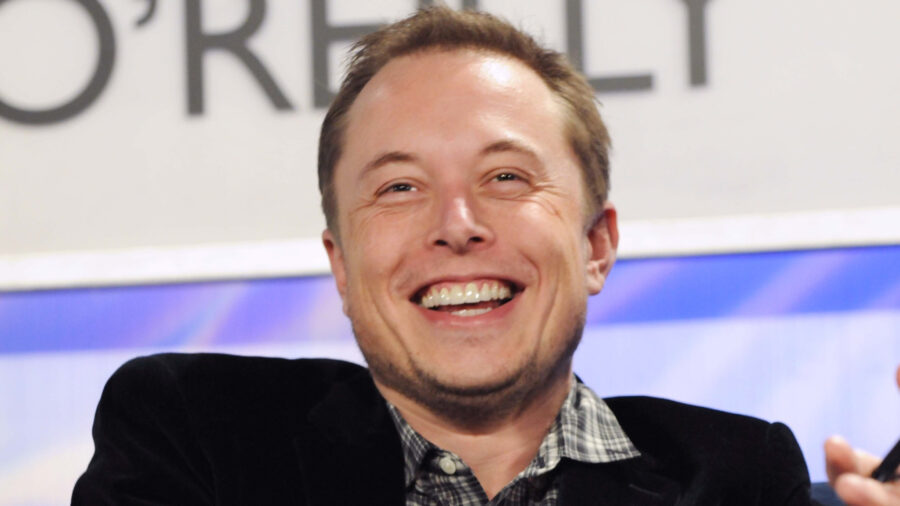What Is Universal Basic Income?
Universal Basic Income is a method of providing for the basic needs of citizens without requiring them to earn it.

Universal Basic Income (UBI) is a government-funded guaranteed payment to each citizen across the United States. Its intent is to cover the cost of basic living expenses as well as help provide financial security. This universal basic income would go to everyone, regardless of income level.
Universal Basic Income is not a new idea. Its roots take place many centuries ago as a way of providing the have nots with a simple living wage.
Universal Basic Income But Only If You Give Up Your Vote?
Master science fiction author Robert A. Heinlein began writing about Universal Basic Income as a concept as early as 1936 in an unpublished short story.
Heinlein and other science fiction authors who write about Universal Basic Income often structure it as a something you can get only in exchange for some of your other rights.
In the novel Starship Troopers, for instance, Heinlein proposes a society in which only those who accept military service get the right to vote. Some have also applied this to basic income, proposing a system where basic income is available to anyone who wants it, but only if they give up their right to vote.

Why is giving up the right to vote a critical component in making UBI work? Simple. If the majority of the population is on Universal Basic Income, it gives them the power to vote themselves endless raises until the economy collapses.
The only way to avoid that fate is by removing their ability to vote themselves raises and giving over the management of the Basic Income system to some disinterested third party.
Universal Basic Income Could Be Done With An Incentive To Keep Working
Another way futurists often imagine Universal Basic Income is as a lower tier level of society, which you can only escape by giving up your basic assistance.
The world of The Expanse series uses this system, where people can get Basic Income, but they aren’t allowed to work as long as they have it and they are capped on how much they get.

To actually increase your income you must give up UBI and go out into the world of work and risk, taking your chances on the open market. If that doesn’t work, Universal Basic Income is always there to fall back on and give you a basic, if not exactly lavish, existence.
Universal Basic Income Could Work In A Post-Scarcity Society
Another way futurists imagine Universal Basic Income functioning involves a post-scarcity society.
“Post-scarcity” means technology has progressed to the point where anything anyone wants can easily be produced by machines or other means, without the need for human labor. In such a world “work” is no longer necessary and is only something someone does if they want prestige or want to challenge themselves.
Everyone else either gets everything they need for free, or through a Basic Income provided by the government.
Post-scarcity societies are seen throughout science fiction, most notable in Star Trek where money is no longer used. In Star Trek, Federation citizens can get anything they want from a replicator, simply by asking for it.

Instead of money, Federation citizens compete for prestige from accomplishments. It’s not exactly clear how this system actually works, but it is clear that human needs are all met and money isn’t a thing in the Federation.
The Culture novels of Ian Banks also explore the idea of a post-scarcity society. In his future Artificial Intelligence provides for all human needs, freeing up humanity to devote themselves to things like arts and sciences or, in some cases, just having fun.
UBI May Have Actually Been Invented In A Small English Village Called Speenhamland
As one story goes, a small England village called Speenhamland needed a way of offsetting the rising prices of grain, so a group of magistrates met in attempts to solve the crisis. The social system at the time was called the Elizabethan Poor Law, which saw indigent adults separated into three groups: the ones who could work, the ones who could not, and the ones who were called the “idle poor” or the ones who didn’t want to work.
Those who could or were disabled received aid or work through the local parishes. Those who didn’t want to work were either forced into labor or were collected and beaten for being lazy bums.
These magistrates devised a system to help. They topped up the household incomes to cover their cost of living. Others would get three-gallon loaves of bread per week as well as a loaf and a half for every other household member. Big families could truly make out.
Naysayers to the new Universal Basic Income system rightfully pointed out that it would incentivize the lazy to continue to be so. They were right. And that is the crux of the universal basic income system.
Universal Basic Income Even Gives Money To The Wealthy
The disparity of income across the globe is the driving force behind universal basic income. Rising costs and dwindling jobs are also major contributors to the nation’s poverty line rising higher and higher. The rise in homelessness is an indicator of how bleak things are becoming as millions are unable to provide for themselves even the most basic of needs. So, would a universal basic income work?
The obvious answer is yes. By providing a set amount for those who are in need, the nation could possibly get rid of welfare programs such as unemployment, housing assistance, and the earned income tax credit. But then we start getting into the nitty-gritty of such a program.
As advertised, the universal basic income would go to all. Everyone. Yes, even the supremely wealthy. Of course, as with those sporadic at best stimulus checks, the universal basic income could be tiered.
Spain Is Trying Universal Basic Income Right Now

Right now, Spain is in the middle of the largest attempt to date at a universal basic income. The results are mixed though it has helped their devastated economy. Other countries have tried smaller versions of this with the same mixed results.
There are some telling advantages to a universal basic income for those in the U.S. Workers could afford to hold out for better-paying jobs or even higher wages. It could allow for some to stay home to care for the elderly. The influx of cash could help revive the economy.
Theoretically, the government would spend less on this than it would with the current welfare programs we have in place.
Implementing This System Could Cause Massive Inflation
But there is always the flip side to the good. With cash in hand, inflation could rise as makers would know everyone has cash in hand now. As inflation rises, the universal basic income remains the same, so in the long run, we could be defeating the purpose.
Those who have no desire to work will have less incentive to go out and find a true paying job. Damned if you do, damned if you don’t.
Elon Musk Believes Robotics Will Force Us Into UBI

It may come down to the fact that there will be no choice to have some sort of universal basic income set in place. Elon Musk feels that robotics will be what drives the decision.
With more and more companies turning to automation and robotics to handle their business, job opportunities will begin to dwindle, forcing a universal basic income. “There is a pretty good chance we end up with a universal basic income, or something like that, due to automation,” Musk told CNBC.
“Yeah, I am not sure what else one would do. I think that is what would happen.” But Musk doesn’t necessarily feel a universal basic income system would be a bad thing, “People will have time to do other things, more complex things, more interesting things,” says Musk.
“Certainly more leisure time.” Musk is looking at it that a universal basic income would go a long way not only to boost the economy but allow people to afford more time to search for what suits them.
Richard Branson Believes It’s The Only Way To Protect Workers Who Lose Their Jobs To AI
Sir Richard Branson also feels similar to Musk. “I think that’s really important,” he told CNN. “It will come about one day.” Branson feels a universal basic income is necessary because it can protect those who may lose their job to artificial intelligence.
Even Facebook’s CEO Mark Zuckerberg said during a Harvard commencement address, “We should explore ideas like universal basic income to make sure that everyone has a cushion to try new ideas.”
Paying For Universal Basic Income Could Mean More Taxes For Workers
Another big disadvantage to a universal basic income is how to pay for it. The government just can’t print money to dole out (well, it can but…) so to get money in the pockets of every American, there is going to have to be a tax increase.
Since you can’t tax the people solely existing on Universal Basic Income (that would defeat the purpose), you’re only left taxing those who work. But if workers lose a big chunk of money to those who don’t work, it’s unclear why they’d want to continue working instead of simply taking it easy and enjoying UBI.
If taxes have to be raised all around, then what exactly is the big benefit of a universal basic income? Higher taxes, less money, less people to do the work that needs to be done.
The answer is never simple. On the surface, a universal basic income would be a welcome to the wallets of millions across the nation and to our struggling economy. It would be the boost we could all use during this time of the continuing pandemic.
Millions of jobs have been lost, thousands upon thousands of businesses have gone under. Some day Universal Basic Income could be the solution.












